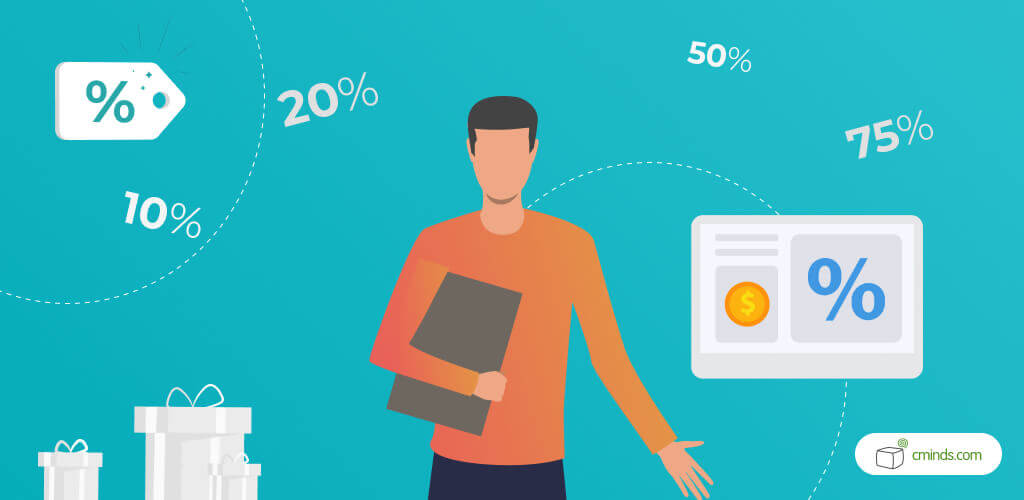What internet entrepreneur doesn’t love to hear a good eCommerce success story?

Forming a thriving online business is no simple task, but understanding how others did is a great way to start. You can learn a lot from their successes, and sometimes even more from their mistakes, making these kinds of stories invaluable for any ambitious Ecommerce businesses.
From the largest online sellers, to small but booming family businesses, there are plenty of good Ecommerce practices everywhere. But to find inspiration for your own webstore, we’ve gathered 3 of our favorite Ecommerce success stories below – along with helpful recommendations that will help you follow their same strategies.
December 2024 Offer – For a Limited Time Only:
Get All Access Pass Package for Magento 2 for 25% off! Don’t miss out!
1. Amazon

Let’s start right off with a huge Ecommerce success story from a business everyone knows. When Ecommerce is mentioned, Amazon is usually the first website that comes to mind—meaning they obviously did something right.
Originally founded in 1994 as an online bookstore, Amazon started with a much smaller focus before becoming the epic seller of everything it is today. The website got into the Ecommerce market early on, and grew by slowly increasing its product-base little by little.
But one thing that really makes Amazon stand out as an Ecommerce success story, is its pioneering of online affiliate marketing model that countless modern retailers still follow. It’s not hard to see why, as their affiliate marketing method comes with two major benefits:
1. It lets other sellers advertise and trade products on their website, grossing Amazon a share of those earned profits.
2. It naturally increases the number of customers who engage with Amazon’s website, giving their own products and services more exposure.
The Take Away
If your website draws traffic, and there are products relevant to your content, then consider implementing an affiliate marketing program.
By simply offering recommendations for products and services you signed up with from your website, you may find yourself generating a notable stream of passive income.
2. Pixie Faire

Other than titans like Amazon, you have smaller Ecommerce success stories that are just as impressive in their own right. Take Pixie Faire, for example. This business digitally sells doll clothing designs online, and was started at home by a couple of full-time parents.
They began by sewing and selling physical articles of dolls clothing for order through an eBay store. But before long, the demand for their products became too great to meet without outsourcing manufacturing, which they wanted to avoid.
The solution? Make their patterns digital. The result? Their business exploded, and their website now commands the attention of an entire niche market for custom dolls clothing. You can read an interview on how they got going here.
In the interview, some of the biggest tactics that Pixie Faire attributes its growth to are email campaigns, video advertisements, and moving their store to an Ecommerce friendly content management system. But ultimately, they believe a clear product strategy focused at an unfilled market was the biggest factor to their success.
The Take Away
Planning a carefully targeted product strategy can be all the difference in a futile business attempt, and a golden opportunity. But even if you have a dynamite product on your hands, you’ll need an effective website to market it strongly.
Magento users don’t need to worry about whether they chose the right CMS to start their own Ecommerce success story. As one of the most popular, and most effective, Ecommerce platforms on the market they can rest assured.
But to ensure a website has what it takes to best sell its products, extensions and regular maintenance are required. Services are available (like the one mentioned above) to improve your store with handy extensions, performance monitoring, and scheduled support.
3. Finch Goods

Finch Goods, a online men’s accessory store, is another fantastic example of thriving on a typical Ecommerce marketing model. This startup company quickly exploded into popularity through quality products and traditional marketing aimed largely at return business.
But there’s another reason this Ecommerce success story online is one of the better examples to study. 6-months after launch, Finch Goods founder Richard Lazazzera released a detailed blog post that explained how he did it using foundational Ecommerce elements.
As Lazazzera explains, one of the greatest hurdles he had to overcome was keeping a good stream of customer traffic flowing through his website (which is an issue familiar to any webstore owner). However, he overcame this problem by constructing a careful marketing plan that kept his store fresh in customer’s minds.
He applied abandoned cart email reminders, retargeting ad campaigns, customer loyalty programs, newsletter emails, product referrals, and other similar tactics in a focused effort to increase the relevancy of his brand to his existing customers. Basic Ecommerce marketing, but when applied in a targeted fashion as Finch Goods demonstrated, the results can be incredible.
The Take Away
Upholding strong relationships with your customers is incredibly important for any business with a range of products to sell. To inspire return customers, there are many essential tools out there available to help you get them coming back.


